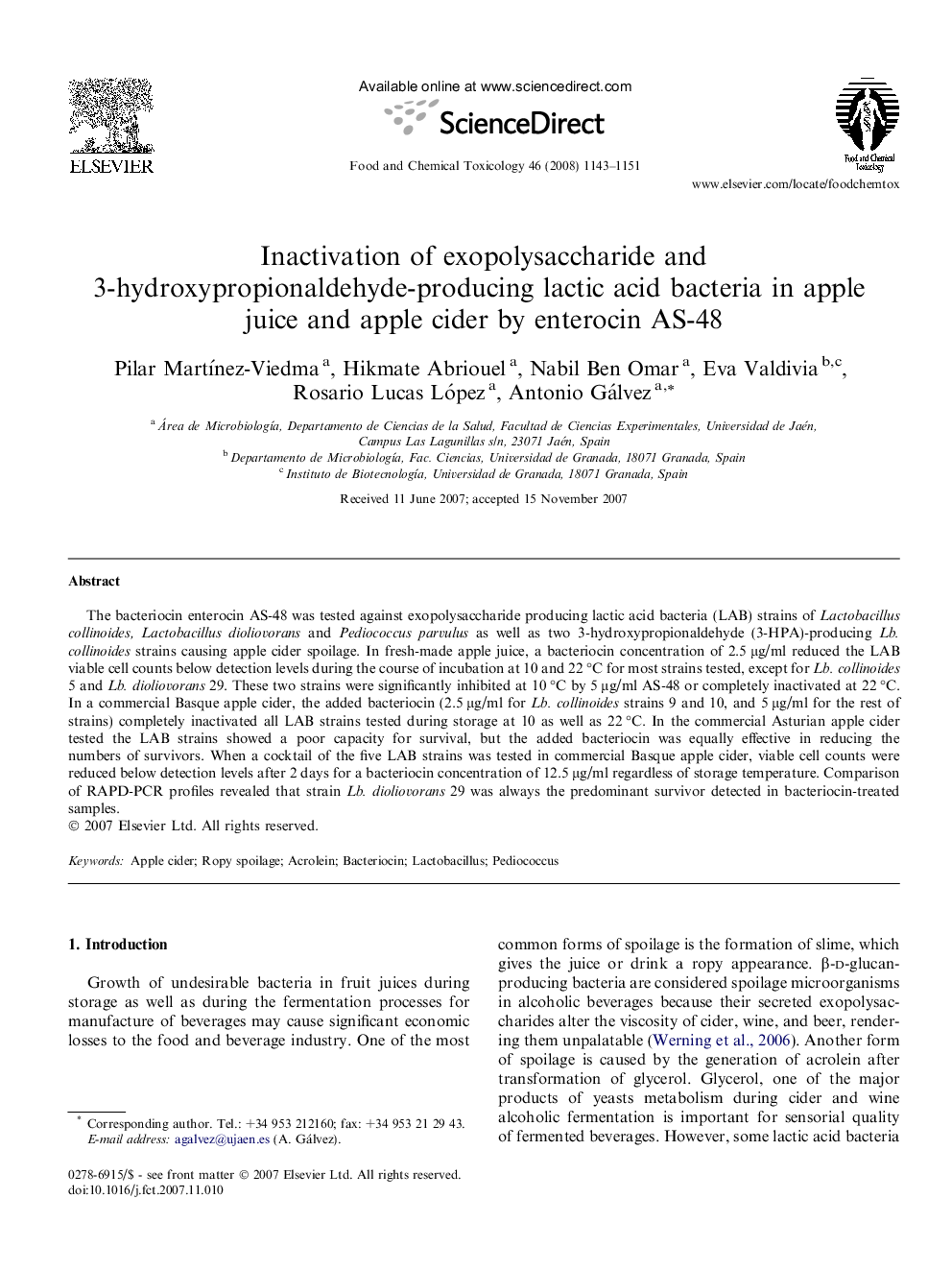| Article ID | Journal | Published Year | Pages | File Type |
|---|---|---|---|---|
| 2587699 | Food and Chemical Toxicology | 2008 | 9 Pages |
The bacteriocin enterocin AS-48 was tested against exopolysaccharide producing lactic acid bacteria (LAB) strains of Lactobacillus collinoides, Lactobacillus dioliovorans and Pediococcus parvulus as well as two 3-hydroxypropionaldehyde (3-HPA)-producing Lb. collinoides strains causing apple cider spoilage. In fresh-made apple juice, a bacteriocin concentration of 2.5 μg/ml reduced the LAB viable cell counts below detection levels during the course of incubation at 10 and 22 °C for most strains tested, except for Lb. collinoides 5 and Lb. dioliovorans 29. These two strains were significantly inhibited at 10 °C by 5 μg/ml AS-48 or completely inactivated at 22 °C. In a commercial Basque apple cider, the added bacteriocin (2.5 μg/ml for Lb. collinoides strains 9 and 10, and 5 μg/ml for the rest of strains) completely inactivated all LAB strains tested during storage at 10 as well as 22 °C. In the commercial Asturian apple cider tested the LAB strains showed a poor capacity for survival, but the added bacteriocin was equally effective in reducing the numbers of survivors. When a cocktail of the five LAB strains was tested in commercial Basque apple cider, viable cell counts were reduced below detection levels after 2 days for a bacteriocin concentration of 12.5 μg/ml regardless of storage temperature. Comparison of RAPD-PCR profiles revealed that strain Lb. dioliovorans 29 was always the predominant survivor detected in bacteriocin-treated samples.
